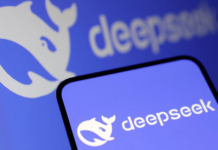Organizations fight a never-ending battle to keep their infrastructure and data safe from cybercriminals in a time when dangers from the digital realm are developing at an unprecedented rate. Traditional security measures by themselves are no longer adequate as cyberattacks grow more complex. It is time to enter artificial intelligence (AI), a cybersecurity game-changer.
AI for Proactive Defence

AI enables companies to take a proactive stance toward cybersecurity by giving them the ability to foresee, identify, and neutralize threats instantly. Artificial intelligence (AI) systems can scan enormous volumes of data to find patterns and anomalies suggestive of possible security breaches by utilizing machine learning methods. Being able to spot threats early on is essential for keeping up with hackers, who are always changing their strategies.
Enhanced Threat Intelligence and Response
The capacity of AI to deliver improved threat intelligence is one of the technology’s main benefits for cybersecurity. Massive amounts of information, such as previous attack patterns and worldwide threat feeds, can be combed through by AI-powered systems to find new threats and weaknesses. Organizations may effectively manage resou
rces and prioritize security activities to address the most critical risks with the help of this intelligence.
AI also automates incident response procedures, allowing businesses to react quickly and forcefully to security incidents. AI-driven security platforms reduce the impact of cyberattacks by containing threats, mitigating damages, and quickly returning systems to normal operations through sophisticated automation and orchestration capabilities.
Adaptation and learning
Because cyber threats are dynamic, security systems must be able to change and adapt quickly. In this sense, AI shines because it is always absorbing new information and modifying its protection systems accordingly. AI systems become more skilled at identifying and neutralizing new dangers and attack methods as they come across the
m, thereby protecting enterprises from assaults in the future.
Challenges and Considerations
Even though AI has a lot of potential for cybersecurity, its adoption is not without its difficulties. Organizations need to address issues with algorithmic bias, data privacy, and the possibility of adversarial assaults. Furthermore, a major barrier to widespread adoption is the lack of qualified AI personnel. Organizations must emphasize ethical issues throughout the AI lifecycle and invest in talent development programs in
order to fully reap the benefits of AI in cybersecurity.
The Future of AI in Cybersecurity
Artificial intelligence (AI) will become increasingly important in cybersecurity as cyber threats continue to change. Future developments in AI technology, such as federated learning and explainable AI, should improve cybersecurity defence’s effectiveness and transparency even further. Organizations may strengthen their defences, protect their digital assets, and maintain their resilience in the face of changing cyber th
reats by implementing AI-driven security solutions.
Conclusion
In the incredibly linked world of today, cybersecurity is not only essential but also vital from a strategic standpoint. AI provides us with a potent toolkit of methods and strategies to strengthen our defences against ever-changing cyberthreats. Organizations may remain ahead of the curve and safeguard their most precious assets in the digital era by utilizing AI for proactive threat identification, improved threat intelligence, and adaptive defence mechanisms.
Are you prepared to adopt cybersecurity powered by AI and defend your company from new threats? Together, let’s go out on this path to guarantee a more secure and safe digital future for everybody.






